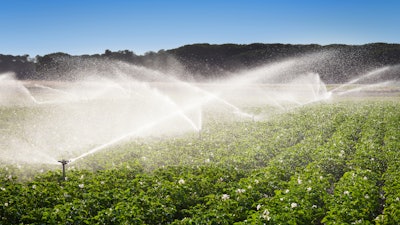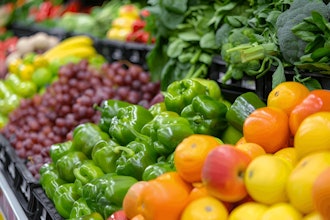
The FDA’s Food Safety Modernization Act (FSMA) is revolutionizing the nation’s food safety system, by ensuring that food operations focus on the prevention of food safety issues to avoid foodborne outbreaks. Under the Food Safety Modernization Act (FSMA), the US Food and Drug Administration (FDA) has issued a series of rules “establishing science-based minimum standards for the safe growing, harvesting, packing, and holding of produce”. On Dec. 2, 2021, the FDA issued a new proposed rule in this series that changes the process by which farms identify and control risks to agricultural water. The proposed rule, 86 FR 69120, holds producers accountable for developing risk assessment and mitigation procedures to proactively prevent contamination events.
Why the Proposed Agriculture Water Rule Has Been Created
The original rules established by FDA in 2015, against which the Leafy Greens Marketing Agreement (LGMA) was aligned in 2017, required periodic water quality testing to detect pathogens in agricultural water, with pre-harvest water of particular focus. However, because agricultural conditions can change quickly and test results today may be irrelevant tomorrow (a situation that can put producer operations at risk for potential foodborne illness outbreak and recalls), the FDA’s newly proposed rule requires producers to prepare a food safety plan based on “systems-based agricultural water assessments” similar to food processors. Risk assessments allow the producers to better understand the conditions surrounding their operations, including how the environment and production areas may introduce risks under different environmental conditions. Developing preventive measures and procedures based on the specific conditions and risks at the farm site is the only way to effectively reduce the risk of contaminated water contacting produce in the field or during the harvesting and processing stages.
Considerations in Light of the New Rule
A food safety plan to mitigate risks should only be put together after a thorough risk assessment has been completed. Expertise in the process of conducting a risk assessment comes with practice, industry knowledge, and experience within an operation. A partnership between a risk assessment expert and the farm manager is key to conducting a complete and effective risk assessment and creating a food safety plan that adequately addresses the wide range of possible risk scenarios.
Farmers should take the following factors into consideration:
- Risk-based plans are customized to your unique operation and are adaptable, rather than being built around rigid requirements. This is an opportunity to develop a plan that makes sense for your operation.
- As you evaluate water sources originating either onsite or on lands adjacent and nearby, remember to consider the risks of those sources under both normal and extreme conditions where exposure to microbiological, chemical, physical and radiological hazards may be introduced.
- Don’t limit your assessment to a narrow view of the definition of “nearby.” Instead, consider risks that can make distant activity a real food safety hazard for your operation, such as extreme rain events that lead to flash flooding, carrying contaminants from operations many miles away.
- Talk with your neighbors and utilize university extension agents for their local knowledge of water sources and land use history.
- Don’t throw out those testing plans from the earlier rule implementation; they may still fit into your strategy under the new proposed rule.
- Consider the benefits of diversifying your landscape to provide natural buffers from intrusion by unwanted water sources into agricultural areas, and to help improve biodiversity and beneficial insects.
Helping Farms Navigate the Rule and Prepare for Change
Enforcement of the Produce Safety Rule for certain operations is set to begin in January 2022 and roll out gradually through 2023 (see the proposed rule for current enforcement dates), but the FDA will use enforcement discretion of the current rules during the period that the new proposed rule revisions are considered and finalized. This period of enforcement discretion allows farms time to evaluate the implications for their operations and prepare their operations for successful implementation of the new rules once they are finalized by FDA. Farms affected by the proposed rule revisions should remain in compliance with Good Agriculture Practice in managing the quality of its water sources. The proposed rule is open for public comment until April 5, 2022 and all producers are encouraged to take this opportunity to provide input.
Consulting service providers have the expertise needed in food hazard risk assessment and mitigation strategies to support farming operations as they prepare for the upcoming proposed revisions to the rules. They work with a network of experienced professionals in the system evaluation, development and validation of risk assessments and food safety plans to support the food industry and protect operations from food safety recall risks. The new rules for irrigation water will take some planning and adjustment on the part of the operations who must make this shift toward prevention. With the right experience and advice from a trusted partner, a robust risk assessment, sampling protocol, and operating procedures will provide assurance through the supply chain.
Carey Allen is Vice President & Managing Director at SCS Global Services






















